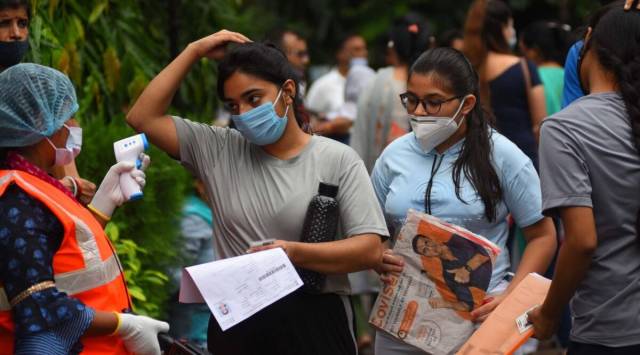
Written by Kinshuk Gupta
It was our second year of medical school. We had heard stories of diligent doctors who do everything they can to pull patients out from the jaws of death. After a year and half of sitting in classes, learning the course of a vessel, the physiology of a nerve and the biochemistry of cholesterol, we finally got the chance to step into a hospital. We had to learn the tactics needed to elicit a useful clinical history and how to strike the hammer during a knee-jerk reflex test. We had so much to learn in so little time.
Geared with Littmann stethoscopes, we reached the wards crowded with patients. “Patients are your best teachers,” we reminded ourselves. We were preparing to go to the patients when the residents stopped us. The very next day, the government announced the Covid-19 lockdown. We returned to our homes. There were online classes to supplement our studies, but they could only simulate the practical experience. Over the next two years, our learning never picked up steam.
We returned in our final year — the toughest year in the curriculum. There were nine lengthy subjects to cover in just eight months. Our professors expected us to know the basics and skipped over them while teaching. But we could not properly learn them earlier, so we had extra work to complete. Our anxiety was already through the roof when a new pattern of exams was announced.
A top official anonymously spoke about the National Exit Test (NExT) to a newspaper, which was reported by other news portals without much additional information, stating that the new pattern will first be implemented for the batch graduating in 2023.
NExT will replace the two-decade-old NEET-PG that medical graduates have had to clear for acquiring postgraduate seats. Heavily borrowing from the USMLE (United States Medical Licensing Exam) — a multi-step assessment that tests the recall, concepts, and clinical skills of medical students to allow practice in the US — it will be a three-day affair with morning and evening shifts every day.
Happening just after the final year, it will also do away with one year of preparation, as NEET is conducted after the students’ internship. To prepare for 19 subjects, along with a volley of tests and assignments, seems next to impossible. That too, when nothing concrete has been shared.
The problem compounds for the students planning to go outside India for their Masters. They would need to prepare for this exam and secure at least passing marks to get their undergraduate degree. They would also no longer be able to get extensions in internships for electives in hospitals in the US, since an internship needs to be completed within the stipulated time according to the new rules.
Shifting to an exam that would also double up as the final professional theory exam is fraught with multiple challenges for colleges as well. The most basic is being able to complete the syllabus within time — in fact, at least two months prior to the exam, which sounds preposterous right now, given that many private colleges in UP have only conducted pre-final professional exams this March.
The abrupt introduction of baffling changes in the last days leading to major exams has been a recurring pattern lately. Take, for example, INI-CET, an exam that allows entrance into the most sought-after central institutions. It replaced the older exam just a month before its scheduled date.
Every official order sounds like a warning. An update earlier this year stated that the exam would happen in two parts — once after the second year of college, and the next after the final year. Barring skeletal information about the basic course structure, and a few scattered facts that come unpredictably, students are left wondering about the details of an exam that they might have to attempt in January.
Gupta is a New-Delhi based writer and a medical student